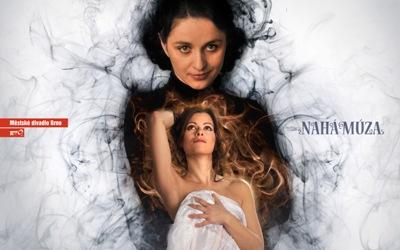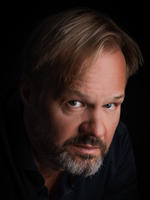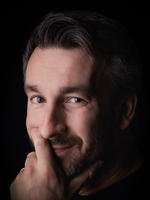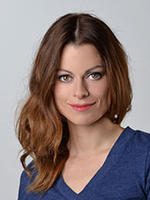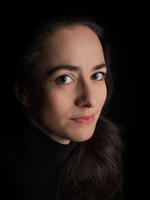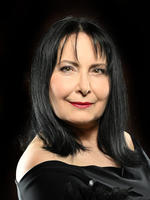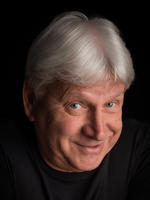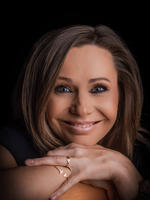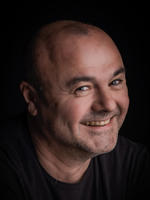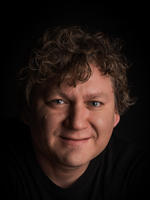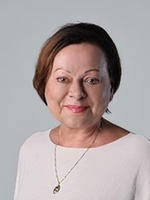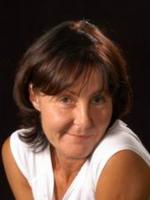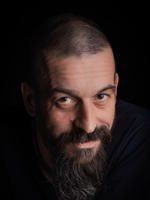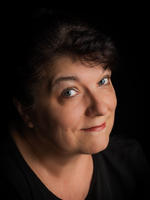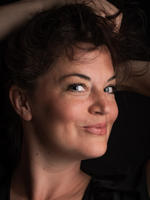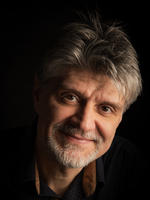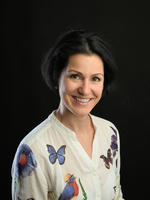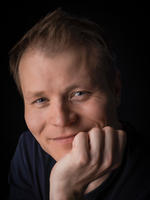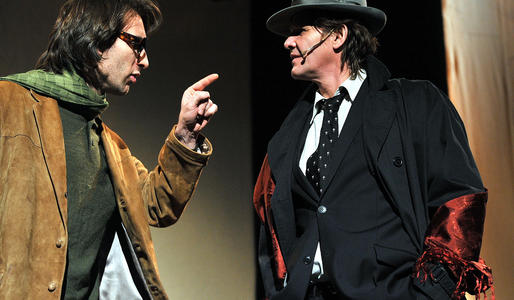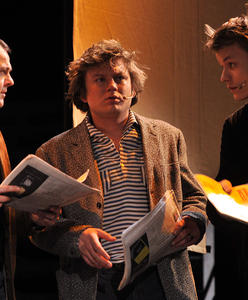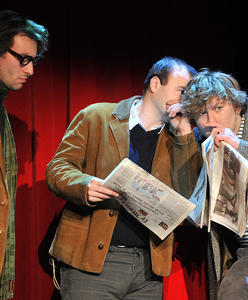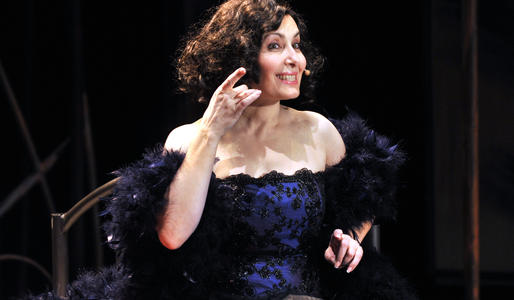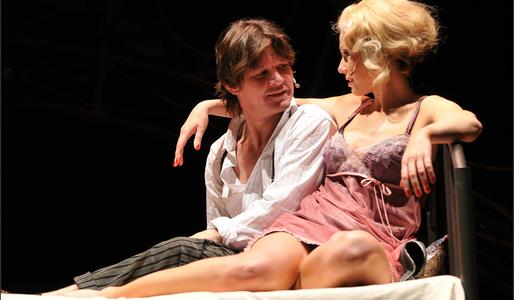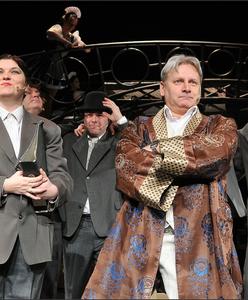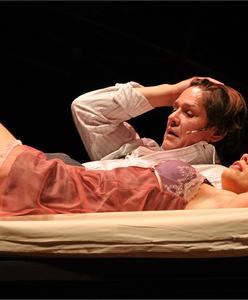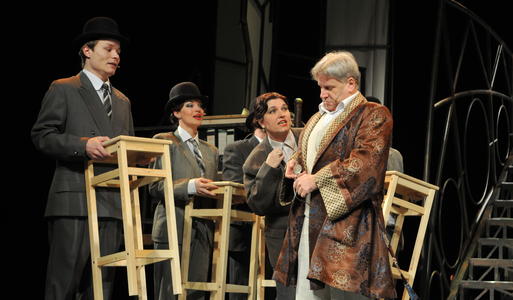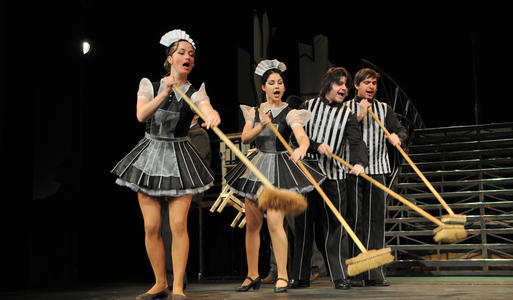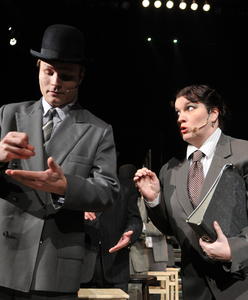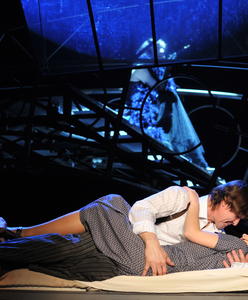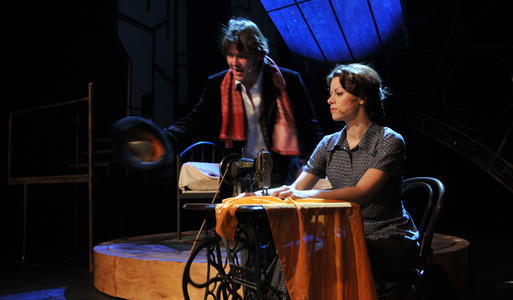The Naked Muse
Lenka Suchá 16. March 2010 zdroj Brněnský deník
The first joint project from Zdenek Merta and Zora Jandová brings the atmosphere of bohemian inter-war Paris to the stage with all its varied environments and moods. The original chanson musical The Naked Muse at the Drama Theatre of Brno City Theatre presents a variety of genres in its more than thirty musical numbers, rather than just a well thought out, enclosed form. This musical is also the climax of the thirty years of cooperation between this married couple and in it Merta, traditionally, presents himself as the composer while Jandová, for the first time, is named as the exclusive author of the libretto. The simple and yet thrilling plot is made up of a classic love triangle between painter Marian, sculptor Frederik and their beautiful muse, Magdalena. The guest director and scenographer Šimon Caban has created the bustle of a big city, bars and cafes using a metal labyrinth on a turntable, which moves practically without stopping.
A special feature of the production is the division of the character of the Muse into the young girl, Magdalena (Hana Holišová), and her older image, who comments on the events only sporadically at first and gets more space in the second half. Zora Jandová shows, with almost surprisingly refined stylization and with the accompaniment of a live orchestra, the essence of mature femininity and assured singing in the chanson songs which are close to her heart. The authorial theatre debut of Jandová and Merta thus presents a nice attempt at an original chanson musical which revives the old well known truth: men keep looking for their muse despite the fact that they have long had the best one at home.
The Naked Muse
Vladimír Čech 16. February 2010 zdroj Hospodářské noviny
The Naked Muse is a musical about love, the search for one’s own creative path, and art in general, but it is also about morals and ethics, as fame can confuse many people and destroy their character. It seems that the authorial duo of husband and wife have tried to grasp several topics at once, enriching the result.
Zdenek Merta’s music is likeable, and several of the melodies would deserve not to be forgotten after the last performance. The composer’s musical language mainly consists of the French chanson, but Merta also sometimes slips into jazz, pop, a hint of serious opera or rock-and-roll – the musical cuts to 1956 as it ends, when (as the newspaper sellers shout) Marilyn Monroe is celebrating her thirtieth birthday and Elvis Presley has become the king of the hit parade with his song Love Me Tender. The little chamber orchestra plays on both sides of the stage, and during the premiere Karel Cón conducted the performance from a piano. It is a good solution because it populates and warms up the stage even more.
It can be seen that the actors, as is perhaps the rule at this theatre, are trying hard. Quite a few opera singers could envy Lukáš Vlček his high tones.
The chanson Naked Muse in Brno
Libor Barok 11. February 2010 zdroj musicalnet.cz
Every artist needs a Muse. But what happens if one woman enchants two men in one moment? This musical, authored by Zdenek Merta and Zora Jandová, had its premiere at Brno City Theatre. We deeply regretted not being able to attend this celebratory event, but we are going to bring you a report from the last non-public rehearsal of the chanson musical The Naked Muse. Zdenek Merta has composed very likeable music for this musical; it is full of chanson melodies, beautiful accordion tones and has a great potential for showing the talents of the piano masters. Zora Jandová’s texts are also written with great sensitivity - witty in one moment and deeply tragic in the next. The married couple Zora Jandová and Zdenek Merta spent over two years preparing the chanson musical The Naked Muse, and it was immediately clear to me during the rehearsal that I’m not watching yet another quickly produced musical. In The Naked Muse, every scene, every word, every movement and I would say that even every note from a musical instrument fits exactly into the story and nothing is done only half-way.
It’s always great for a musical to feature a live orchestra, and as this is already a custom at Brno City Theatre it just had to be there. The orchestra, placed along the sides of the stage, is an almost unbelievable addition to the look of the functional stage. The changing of scenes take place using a turntable with a staircase through its centre which reminds one of the Art Nouveau style of France between the wars, and along the sides, there are very roughly drawn houses which one can walk through. Various objects are sent down from the gridiron. If we are in the art bar, we can see old shabby chandeliers. If we are at an important party or vernissage, several empty golden frames and a luxurious glass chandelier come down. In Marian the painter’s room, there is a large studio window hanging. The turntable itself stops only for a minimum of time during the musical. People move constantly in many of the scenes and thus the whole musical is filled with action to an extent that is almost unbelievable.
The story of the production takes place in Paris between the wars. The metropolitan city of art hosts a great many architects, painters, designers, sculptors and other people who are filled with the desire to get rich in the field they love. Each of them needs inspiration. And what is more inspirational for the creation of beautiful things than a beautiful woman? Every artist is looking for his muse. Beautiful Magdalena enchants both the painter, Marian and the sculptor, Frederik in one night. A romantic story which is full of retrospective memories, sarcasm and romance starts to unfold at this moment.
At first, Magdalena gives preference to the painter, Marian. She is happy to be a model for his paintings. Even a picture called The Naked Muse is created. Magdalene gives birth to a daughter called Kristýna. Marián becomes successful and reviewers have nothing but praise for his pictures. However, all people, and artists in particular, are very changeable. Marian starts to have problems with drinking, he stops painting and Magdalena, as well as small Kristýnka, becomes a burden for him. In order to feed the family, Magdalena has to sew clothes at night. “Why didn’t I go with sculptor Frederik back then?” Frederik is quite successful and recognized at the time of Marián’s mental breakdown.
The menace of the Second World War slowly creeps into Paris. As innocent as children’s plush toys, the fear of another military conflict enters every home, affecting even the already devastated Marián, who decides to flee from everything - simply to disappear. He leaves his wife and daughter in that town full of fear and runs away. Abandoned Magdalena soon falls in love with Frederik.
A rumour about the disappearance and subsequent death of the famous Painter soon spreads around the town, and Marián’s pictures multiply in value at that moment. However, during the auction, thanks to which Magdalena could provide for her family, Marián appears in Paris again, sending the value of the pictures right to the bottom. However, a fool turns up at the auction and buys Marián’s pictures for an extremely high price. This fool is Marián himself. At that time, Kristýnka is already an adolescent girl - just like her mother was when she became Marián’s muse.
“A dead person knows nothing.” “She cut up limbs, apparently out of boredom.” “The best artist is a dead artist.” This is only a small sample of the sarcasm and references to death which are heard from the stage during the performance. Zora Jandová also made light of the troubles of old age in scenes where three aunts who are hard of hearing chat over a cup of coffee. The various twistings of words and sentences or the complete changes in meaning due to mishearing them is very witty.
Even though I only saw the rehearsal of the musical, I am nevertheless convinced that the audience won’t get lost in this work full of retrospective, insinuations and pre-war fear. And together with the muse Magdalena, Kristýna, painter Marián and sculptor Frederik, they will arrive at a very interesting conclusion.

